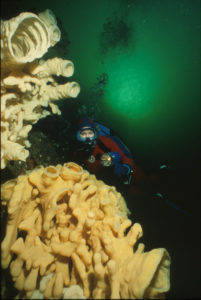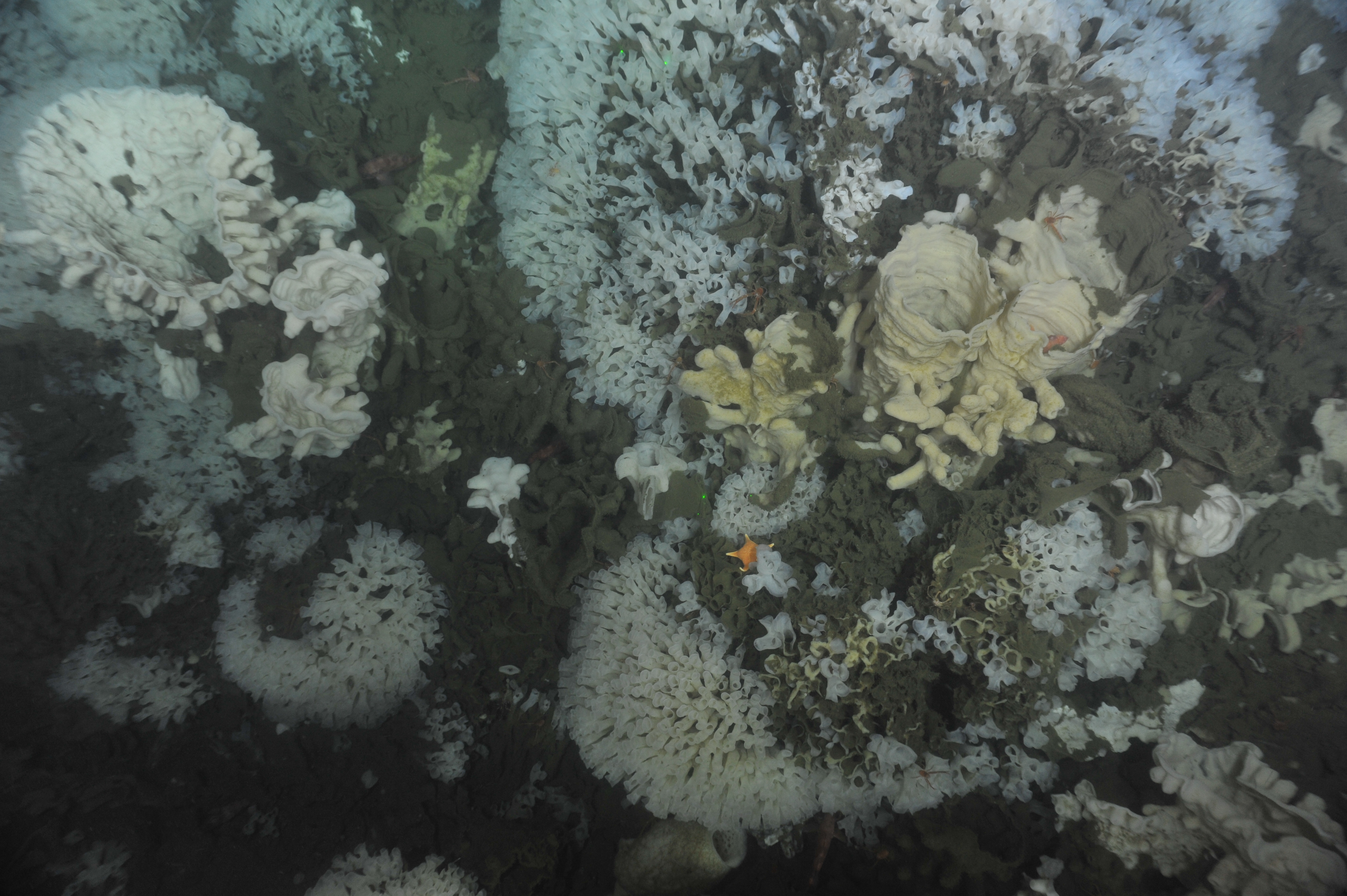The money will go towards projects aimed at documenting and protecting species at risk and environmentally sensitive areas in the Howe Sound region. Read more
Fisheries officers caught a man with prawn traps in an area closed to fishing to protect reef-building glass sponges. Canada has international agreements to protect this underwater species. Read more
The Canadian Parks and Wilderness Society – British Columbia (CPAWS-BC) is pleased to see five new protections announced for glass sponge reefs in Átl’ka7tsem/Howe Sound. These new fishing closures prohibit bottom contact fishing such as trawling and prawn trapping from destroying these rare and ancient ecosystems.
Unceded Coast Salish Territory/Vancouver, BC — A new report from Ocean Wise has updated the health status of Howe Sound for 2020. While there is cautious optimism with some health ratings improving, the Ocean Wise report still has many labelled as critical or cautious, including glass sponge reefs which “remain vulnerable to mechanical damage and climate change.” The report recommends implementing full protection of glass sponge reefs throughout all of Howe Sound.
Long thought extinct, glass sponge reefs mainly grow off BC’s coast. Not only do these reefs provide important habitat for ocean life such as prawns and rockfish, they also filter ocean water, provide fertilizer for plankton, and store carbon.
Glass sponge reefs are particularly vulnerable to shattering from bottom contact fishing such as prawn traps as they are composed of the same material that makes glass. A DFO survey, in cooperation with the Marine Life Sanctuaries Society, not only discovered a dead reef near Ellesmere Creek at the north end of Howe Sound, but found historical damage from fishing activities in all of the surveyed reefs.
Read MoreBen Rahier of the Department of Fisheries and Oceans (DFO) office in Powell River, which is responsible for the Sunshine Coast, said between July 2 and July 4 fisheries officers found 300 spot prawn traps set in an area off Sechelt that is closed to protect glass sponge reefs.
A new study led by Angela Stevenson at the University of British Columbia indicates that ongoing climate change is a serious and immediate threat to BC’s ancient glass sponge reefs. The Canadian Parks and Wilderness Society – British Columbia (CPAWS-BC) calls for the urgent establishment of marine protected areas (MPAs) for glass sponge reefs in BC.
Glass sponge reef ecosystems shelter rockfish and prawns and are efficient filter feeders. Healthy glass sponge reef marine protected areas can filter out up to 90% of bacteria from ocean water and work to keep carbon locked in the seafloor.
Fisheries and Oceans Canada (DFO), along with the Marine Life Sanctuaries Society (MLSS), recently verified five new living glass sponge reefs and one dead reef during scientific surveys in Howe Sound. These reefs need urgent protection if they are to adapt and survive against threats from climate change and human activity.
Read MoreThe Canadian Parks and Wilderness Society – British Columbia (CPAWS-BC) welcomes the conviction of illegal fishing in the Hecate Strait and Queen Charlotte Sound Glass Sponge Reefs Marine Protected Area (Hecate MPA).
Illegal commercial groundfish harvesting was found to have occurred in the marine protected areas. A fine of $20,000 for illegal activity prohibited under the Hecate MPA Regulations, the first conviction under the Oceans Act nationwide. An additional fine, under the Fisheries Act, of $25,000 for possessing illegally caught fish was ordered to be paid.
“We would like to thank Fisheries and Oceans Canada for enforcing MPA regulations under the Oceans Act and protecting BC’s glass sponge reefs,” says Ross Jameson, Ocean Conservation Manager for CPAWS-BC.
Read MoreGraduate student Nathan Grant, sponge expert Dr. Sally Leys, and others from the University of Alberta have conducted the first investigations on how reef-forming glass sponges respond to sediment in natural conditions. The results of the study raise concerning questions about the protection of these unique animals.

Photo by Dale Sanders
Since their discovery in 1987, glass sponge reefs have been thought of as the delicate treasure of BC’s coast. Glass sponge reefs were thought to have gone extinct 40 million years ago, and their discovery has been likened to finding a herd of dinosaurs. Glass sponge reefs are only found in BC and Alaska, forming intricate and towering formations deep on the ocean floor. These reefs form oases amidst the otherwise barren seafloor, attracting numerous species of rockfish, prawns, and sharks. Sadly, these vital ecosystems are vulnerable to damage by sedimentation.
Read More